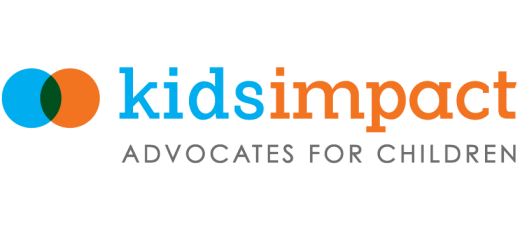These tools for conducting racial equity impact assessments include data sources that are useful for analyzing race and ethnicity in child & youth impact assessments. They also include examples of racial equity impact assessments as well as child & youth impact assessments that emphasize racial equity. In addition to these tools for conducting racial equity impact assessments, see our Racial Equity Accountability resources for more on how governments at all levels are promoting racial equity and how these efforts can be evaluated.
Racial Equity Data
Racial Equity Impact Assessments
Racial Equity Data
Good data is essential to understanding how policies affect children. For example, if children of color have poorer educational outcomes than other children or are more likely to live in unsafe housing, then we know that certain policies and/or budgets are not working well for young people of color.
In addition to frequently used data sources—such as the U.S. Census and data sets produced by states and cities—the following data sources are especially useful for analyzing current conditions for children and youth by race and ethnicity.
- Diversity Data Kids, including Child Opportunity Index 3.0
- National Equity Atlas, including the Racial Equity Index
- The Opportunity Atlas
Racial Equity Impact Assessments
A racial equity impact assessment is a tool for policymakers and other decision-makers to evaluate how a proposed policy or budget decision will likely affect different racial and ethnic groups. This section provides tools and examples.
Included in Kids Impact Initiative’s sample child/youth impact assessment form are several questions that explore the impact of proposed policies on children and youth who are Black, Latinx, Asian American, and/or Indigenous or identify with other racial or ethnic groups.
Other Racial Equity Impact Assessment Tools
- Measuring What Matters for Racial Progress: Local and State Innovation in Racial Equity Impact Assessment, The Institute on Race, Power and Political Economy
- Keeping promises while keeping score: Gauging the impacts of policy proposals on racial equity, Brookings Institution
- Racial Equity Impact Assessment, Race Forward
- Racial Equity Impact Assessments for Economic Policies and Budgets, Race Forward
- Tools for Thought: Using Racial Equity Impact Assessments for Effective Policymaking, The Annie E. Casey Foundation
- Sample Racial Impact Assessment Questions, Center for the Study of Social Policy
- Racial Equity Toolkit to Assess Policies, Initiatives, Programs and Budget Issues, Seattle Race and Social Justice Initiative
- Putting Race Back on the Table: Racial Impact Statements, Shriver Center
- Racial Equity and Inclusion Action Guide, The Annie E. Casey Foundation
- FY24 Operating Budget Equity Tool Guidance Manual, Montgomery County, Maryland
- Racial Equity Budget Tool, Milwaukee County, Wisconsin
- Racial Equity Questions in the City Budget, Philadelphia, Pennsylvania
Completed Racial Equity Impact Assessments
- Racial Equity Impact Assessment of a proposed transportation project in Chicago, Illinois, conducted by Chicago United for Equity (nonprofit organization)
- Racial and Ethnic Impact Statement for SB 134, Virginia legislation to raise the maximum age for delinquency matters in juvenile and domestic courts
- Correctional Impact Statements on minorities on proposed legislation in Iowa related to corrections
- Racial Equity and Social Justice Impact Statements for legislation in Montgomery County, Maryland
- Racial Equity Impact Assessments for legislation in Washington, DC
- Racial and Ethnic Equity Impact Statement on the criminal justice system in response to a state ballot measure related to crime conducted by the Oregon Criminal Justice Commission
- Racial Equity Analysis on certain services for homeless populations, conducted by C4 Innovations (research firm)
- Racial and Equity Impact Note for SB 494, Maryland legislation related to convicting juveniles as adults
Impact Assessments That Center Youth & Racial Equity
- Using Impact Assessments to Determine the Effects of Child Welfare Office’s Plans on Youth of Color describes an effort to help public social services organizations determine the effects of their plans on young people of color in Minnesota.
- A Health Impact Assessment (HIA) of Park, Trail, and Green Space Planning in the West Side of Greenville, South Carolina identifies the effects on children of color of a proposal to expand parks, trails, and green space.
- Racial Equity Impact Assessment of proposed policy to provide access to free period products in schools demonstrates improved outcomes for Black and Latinx youth in Washington, DC.

